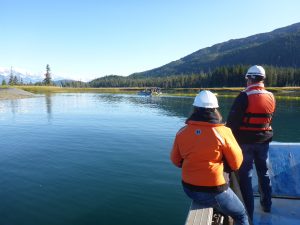The Council held its annual Board meeting by videoconference, on May 7-8, 2020. Among other business, the Board convened to elect officers who will serve from May 2020 to May 2021. All current officers were re-elected into the same positions they held for the previous year.
The elected executive committee is comprised of:
- President: Robert Archibald, representing the City of Homer
- Vice President: Amanda Bauer, representing the City of Valdez
- Treasurer: Wayne Donaldson, representing the City of Kodiak
- Secretary: Bob Shavelson, representing the Oil Spill Region Environmental Coalition
- Three Members-at-Large:
- Ben Cutrell, representing Chugach Alaska Corporation
- Thane Miller, representing Prince William Sound Aquaculture Corporation
- Rebecca Skinner, representing the Kodiak Island Borough
The Council is very happy to have the support of its many volunteers from all over the Exxon Valdez oil spill region. The new executive committee is an excellent representation of the Council.
Executive Committee:
[show-team category=’xcom’ url=’active’ layout=’table’ style=’img-square,text-left’ display=’photo,position,freehtml,smallicons,name’]
News release (PDF): Prince William Sound RCAC announces election of board officers
